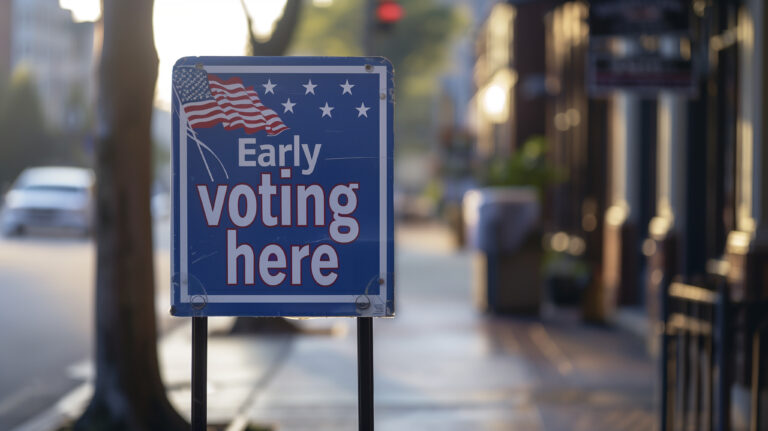
MORRISVILLE, NC, August 29, 2025 — On Wednesday, the newly formed North Carolina State Board of Elections issued a decision behind closed doors to allow counties to eliminate Sunday voting, representing a direct assault on voting access for Black and working-class communities across our state.
Sunday voting has traditionally served as a cornerstone of democratic participation for Black voters in North Carolina, particularly through the vital “Souls to the Polls” tradition where churches organize voting drives following Sunday services. This practice represents more than convenience, embodying the deep connection between faith communities and civic engagement that has defined Black political participation for generations.
“For Black and working-class voters, Sunday represents the only viable option to vote without losing wages or sacrificing essential family responsibilities. While wealthier voters can afford to take time off during weekdays, working families often depend on Sunday voting as their primary pathway to the ballot box,” said Julia Hawes, Communications Director for Democracy North Carolina.
When North Carolina Republicans previously attempted to eliminate Sunday voting in 2013, the 4th U.S. Circuit Court of Appeals struck down these restrictions in North Carolina State Conference of NAACP v. McCrory, finding that lawmakers had intentionally targeted voting methods used disproportionately by Black voters. The court’s ruling described the evidence of racial discrimination as “close to a smoking gun as we are likely to see in modern times.”
“North Carolina cannot and must not return to the discriminatory voting practices that federal courts have already rejected. We urgently call on county election boards across North Carolina to reject this harmful option and maintain Sunday voting access for all,” Hawes said.
###
Democracy North Carolina is a statewide nonpartisan organization that uses research, organizing, and advocacy to strengthen democratic structures, build power among disenfranchised communities, and inspire confidence in a transformed political process that works for all.